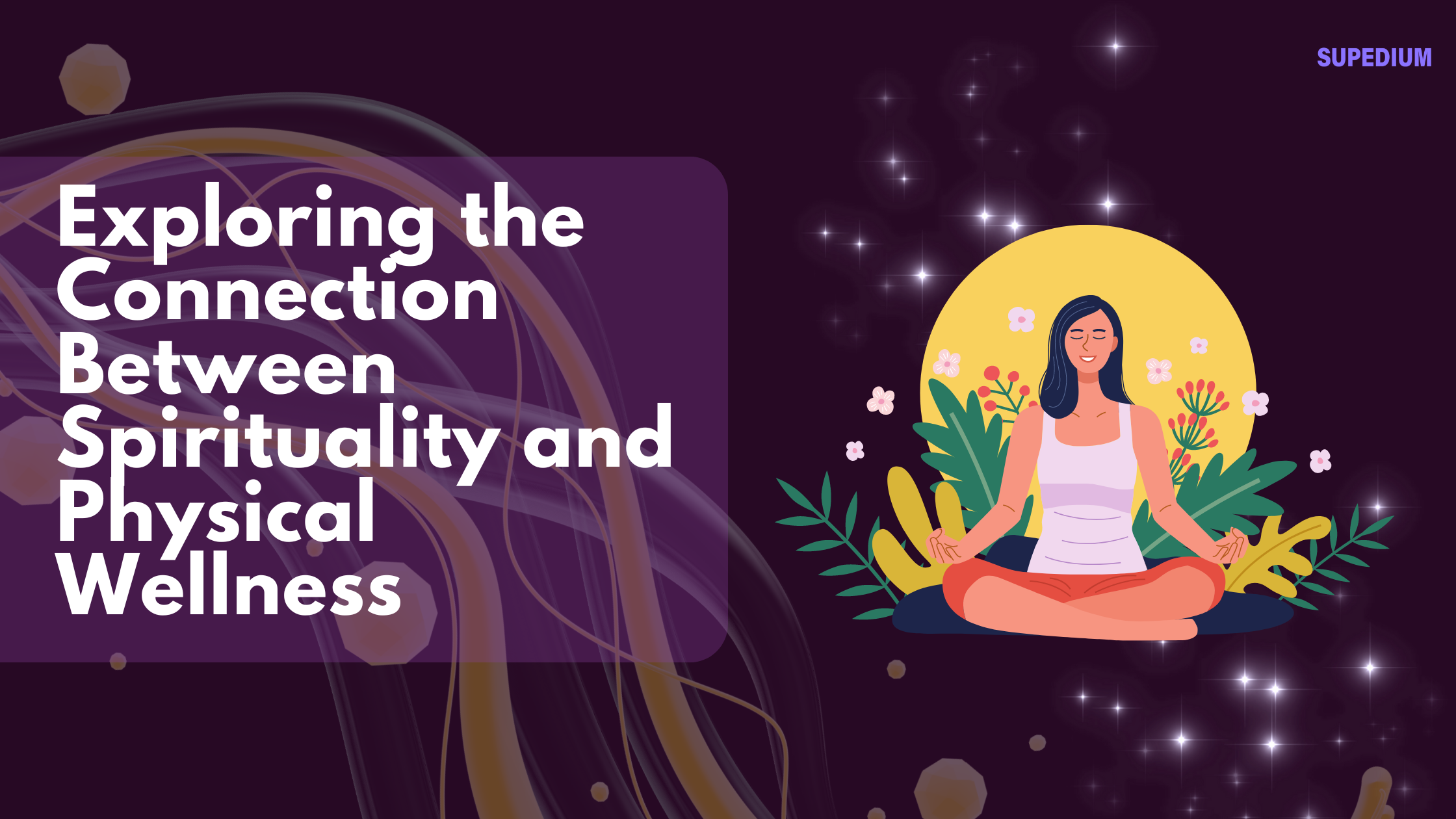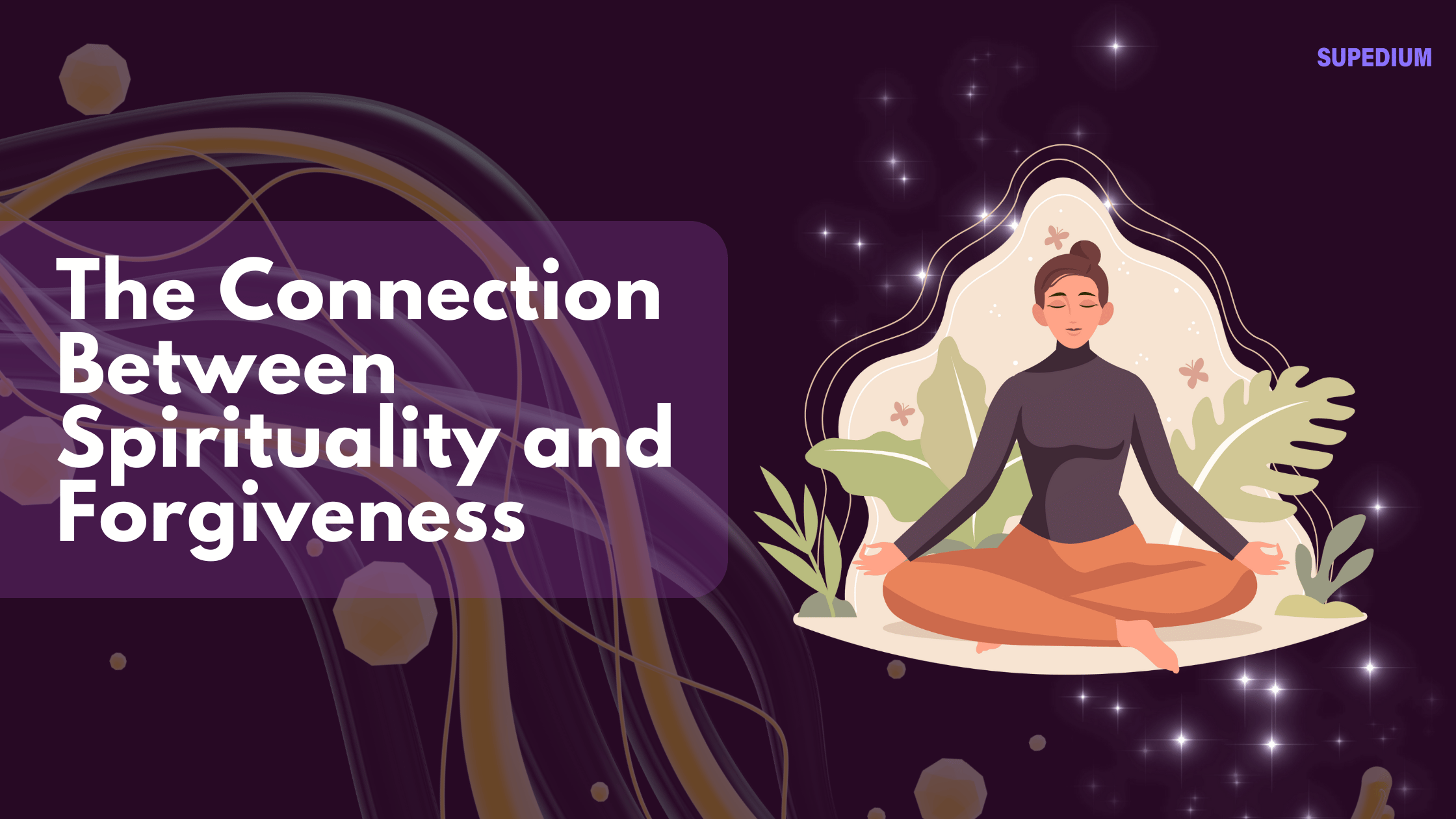Table of Contents
![]()
Introduction
Spirituality and physical wellness are often perceived as separate realms of human experience, yet there is growing interest in understanding how these domains interconnect to enhance overall well-being. Spirituality, defined broadly as a personal or subjective sense of connection to something greater than oneself, and physical wellness, encompassing aspects such as physical fitness, nutrition, sleep, and overall health, can profoundly influence each other. This article explores how spirituality and physical wellness are interrelated, examining historical perspectives, mechanisms of influence, specific practices, empirical evidence, and practical applications.
Historical and Cultural Perspectives
Ancient Practices
Historically, various cultures have recognized a deep connection between spiritual practices and physical health. In Eastern philosophies, such as Ayurveda and Traditional Chinese Medicine (TCM), spiritual and physical well-being have been intertwined for thousands of years. Ayurveda, an ancient Indian system of medicine, integrates physical health with spiritual principles, emphasizing balance among the body’s energies (doshas) and a harmonious lifestyle. Similarly, TCM views health as a balance of vital energy (qi) and incorporates practices such as acupuncture and herbal remedies that are deeply influenced by spiritual beliefs.
Western traditions also reflect this integration. Greek philosophers like Hippocrates acknowledged the link between mind and body, suggesting that mental states could influence physical health. Early Christian practices often included spiritual rituals and communal support, which were believed to contribute to physical and emotional healing.
Modern Context
In contemporary times, the connection between spirituality and physical wellness has gained renewed attention with the rise of integrative medicine and wellness movements. Integrative medicine combines conventional medical practices with alternative therapies, many of which have spiritual components. The growth of mindfulness and wellness movements has brought spiritual practices like meditation and yoga into mainstream wellness culture, further highlighting their potential benefits for physical health.
Mechanisms of Influence
Psychological Impact
Spiritual practices often lead to psychological benefits that can, in turn, impact physical health. Practices such as meditation and prayer can reduce stress and promote emotional resilience. Stress reduction is crucial for physical wellness, as chronic stress is linked to various health issues, including cardiovascular disease, digestive problems, and weakened immune function. By fostering a sense of peace and emotional stability, spirituality can mitigate the harmful effects of stress on the body.
Physiological Impact
The mind-body connection plays a significant role in how spiritual practices affect physical health. The relaxation response triggered by practices like meditation has been shown to lower blood pressure, improve heart rate variability, and enhance immune function. Neurobiological research indicates that spiritual practices can influence brain activity, altering levels of neurotransmitters associated with well-being, such as serotonin and dopamine.
Behavioral Impact
Spirituality can influence health-related behaviors and lifestyle choices. For instance, individuals who engage in spiritual practices may be more likely to adopt health-promoting behaviors, such as regular exercise and balanced nutrition, as part of their holistic approach to well-being. Additionally, spiritual beliefs can motivate adherence to healthy habits and discourage harmful behaviors, contributing to overall physical wellness.
Specific Spiritual Practices and Their Effects
Meditation and Mindfulness
Meditation and mindfulness are among the most studied spiritual practices in relation to physical health. Research indicates that regular meditation can reduce stress, anxiety, and depression, all of which have direct and indirect effects on physical health. For example, meditation has been linked to lower blood pressure, improved immune response, and enhanced overall health outcomes. Mindfulness practices, which involve being present and fully engaged in the moment, can also contribute to improved mental clarity and emotional regulation.
Yoga and Tai Chi
Yoga and Tai Chi are practices that blend physical movement with spiritual elements. Yoga, originating from ancient Indian traditions, incorporates postures, breathing exercises, and meditation to enhance both physical and spiritual well-being. Studies have demonstrated that yoga improves flexibility, strength, balance, and cardiovascular health. Tai Chi, a Chinese martial art with a meditative component, has been shown to enhance balance, reduce falls in older adults, and improve overall physical health.
Prayer and Religious Practices
Prayer and other religious practices often provide social support and a sense of community, which can positively impact physical health. Engaging in prayer can promote relaxation and emotional comfort, which may translate into physical health benefits. Additionally, religious communities often provide social support networks that can contribute to better mental and physical health outcomes.
Empirical Evidence and Research
Studies on Spirituality and Physical Health
Numerous studies have explored the relationship between spirituality and physical health. For example, research has shown that individuals who participate in religious activities or spiritual practices tend to have better health outcomes, including lower rates of chronic disease and improved longevity. Studies have also highlighted the benefits of specific practices, such as meditation and yoga, in reducing stress and enhancing physical health.
Criticisms and Challenges
Despite the positive findings, there are criticisms and challenges in this area of research. Methodological issues, such as small sample sizes and lack of control groups, can affect the reliability of results. Additionally, individual responses to spiritual practices can vary widely, making it challenging to generalize findings across diverse populations.
Personal and Societal Implications
Personal Benefits
Incorporating spirituality into one’s daily life can lead to enhanced overall well-being. Individuals may experience personal growth, increased self-awareness, and a deeper sense of purpose. By integrating spiritual practices with physical wellness routines, individuals can achieve a more balanced and holistic approach to health.
Societal Impact
Spirituality’s role in public health initiatives is gaining recognition. Wellness programs that incorporate spiritual practices may offer more comprehensive support for individuals’ well-being. As society continues to explore the connections between spirituality and health, there may be increased opportunities for integrating these practices into mainstream health care and wellness programs.
Practical Applications
Incorporating Spirituality into Daily Life
To integrate spirituality into daily life, individuals can start by exploring practices that resonate with them, such as meditation, yoga, or mindfulness. Establishing a regular practice and incorporating it into daily routines can help foster a sense of well-being. Balancing spiritual practices with other wellness activities, such as exercise and healthy eating, can create a holistic approach to health.
Professional Practice
Healthcare professionals can play a crucial role in addressing spirituality within the context of holistic care. By acknowledging and incorporating patients’ spiritual beliefs into care plans, professionals can offer more personalized and effective support. Creating holistic care plans that address both physical and spiritual needs can enhance overall patient well-being.
Conclusion
The connection between spirituality and physical wellness is a multifaceted and evolving area of exploration. Historical and cultural perspectives provide a rich background for understanding this relationship, while contemporary research highlights the potential benefits of integrating spiritual practices with physical health routines. By recognizing and leveraging the interplay between spirituality and physical wellness, individuals and healthcare professionals can foster a more comprehensive approach to overall well-being.
Share This





Be the first to comment